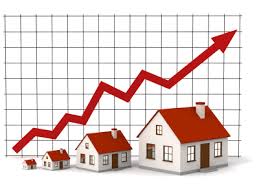 Dear Boston Globe, It is February 28, 2017. Too early for your annual “scare the buyers” article. Please wait until spring. But, since you chose to publish now. I will translate for my clients.
Dear Boston Globe, It is February 28, 2017. Too early for your annual “scare the buyers” article. Please wait until spring. But, since you chose to publish now. I will translate for my clients.
Definitions:
Sales volume: the number of housing units sold in a given period.
Median sales price: The middle price from a list of all properties sold.
Average sales price: The figure that is gotten by adding all the prices together and dividing by the number of prices. This figure is more accurate with a large number of sample prices.
Which is more accurate, median or average? Median is more accurate with a smaller number of sample prices. For example, if one multi-million-dollar house sells among 100 houses selling for $500,000 each, the median will stay about the same, but the average will go up. If state-wide sales are being looked at, thousands of prices are tabulated; the average and median are likely to be similar.
Month to month comparisons: Real estate has seasons. So, it is fair to compare sales volume to the same month in the previous year. However, to see volume trends accurately, more than a month is needed.
Real estate appreciation: How much prices increase over time. Here’s a map with some charts that show how the ups and downs of real estate prices translate into appreciation over time.
What is the article saying? First the scare:
Median price — across the commonwealth — rose 7 percent since January 2016.
Translation: Annual price increase in Massachusetts was 7 percent last year, according to this article. Another source puts the appreciation at about 5.3 percent. Either way – 7 percent or 5.3 percent – that is an expected gain during a seller’s market.
Prices are now 8.5 percent above the 2005 peak price (before the last recession.)
Translation: We had a real estate bubble, followed by a crash. It took eight to ten years for owners to recover their values. Now, appreciation has brought those values over prices in 2005 (not adjusted for inflation.) What does that mean? It means that housing in Massachusetts is a good investment, over time. It means housing prices have continued to increase in a high-demand market. It could also mean that we are headed toward another peak that would be followed by another recession.
Volume:
Volume is up 5.5 percent from January 2016 to January 2017.
Translation: Looking at January 2017, compared to January 2016 is accurate only in that both months are likely to be similarly slow. (Since real estate tends to be slow in the winter.) There was a 5.5 percent jump from December 2016 to January 2017, at a rate not seen since January 2005. This data is meaningless; it indicates nothing. Someone would need to study what was going on in December 2004 and December 2016 to draw any conclusions from this. Notice! There was no conclusion, just a scary statistic.
I took a quick look at the towns we work in. These are rough numbers. Sales volume for the past three months was $865,580,215 (this includes properties that have not yet closed.) The same three-month period in 2015-2016 sold $845,742,398. My figures come out at about 2 percent increase in sales volume. So, looking at the season, the volume increase us real, but perhaps understated.
 Then, the rest is “turn up the pain” and “sell the reward” (I warned you in this blog!)
Then, the rest is “turn up the pain” and “sell the reward” (I warned you in this blog!)
These statements are made, without any documentation. They are generally true, but are the vague language of sales-talk: Interest rates are going up (with no explanation about how it affects a buyer.) Inventory is low. Demand is high. There will be more inventory in the spring. Their translation is: get ready to throw your money away!
Instead, my advice:
Nothing has changed, in my mind since December 2016, when I looked at economic data at length. The facts are generally true. It is a seller’s market. There will be competition. Everyone expects more inventory in the spring, and more competition. Buyers will need our help preparing effective offer packets to compete with other buyers. We’re ready.
Interest rates are going up, so affordability will get worse. That is a topic for another time. I’ll post that on March 15th.


Leave A Comment